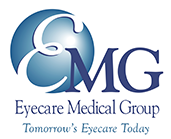
February is Age-Related Macular Degeneration Awareness Month. AMD is a common age-related eye condition where the macula, which is the center of the retina, becomes damaged.
As the macula deteriorates, so does the patient’s central vision. Left unmanaged, AMD can completely destroy your central vision.
This is why it’s important to spot the condition early. Early treatment is essential since any damage to the retina is irreversible. Keep reading to learn more about AMD!
What is AMD?
AMD is simply defined as damage to the macula. There are two types of AMD to categorize what causes this damage.
Dry AMD is far more common, comprising 80% of all cases of AMD. It occurs when the macula becomes thinner and protein grows on the membrane. This leads to the slow deterioration of the macula.
Wet AMD is less common and destroys central vision faster. It occurs when abnormal blood vessels grow under the macula and swell and leak. This causes the retina to scar.
Risk Factors
AMD is usually a symptom of aging. Individuals who are 50 and older are the most likely to develop AMD.
But there are other factors that put you at greater risk of developing AMD. These include:
- Poor diet
- Tobacco use
- Hypertension
- Family history of AMD
Some of these factors you can control by leading a healthy lifestyle. But you can’t help aging or having a family history.
AMD also usually doesn’t present any symptoms until your central vision begins to fade. At this point, the damage is irreversible, so it’s important to get regular eye exams. If there is something wrong, it helps lead to an earlier diagnosis.
Diagnosis
AMD is diagnosed by examining your retina. Your doctor will dilate your pupils to see through them and take pictures of your retina to assess.
They may also use Optical Coherence Tomography, or OCT. OCT scans your eye and examines your retina in greater detail.
This method allows your doctor to see the earliest signs of macular damage.
Treatment
There is, unfortunately, no cure for AMD, but there are methods to manage it. Certain vitamins can slow the progress of dry AMD.
Your doctor can tell you what vitamins to take if they think it’s an effective strategy for managing your AMD.
Wet AMD can be treated through injections and/or laser therapy. Injections of anti-VEGF medication can prevent the production of a protein that causes blood vessel production. Anti-VEGF injections can slow down the growth of new blood vessels.
Laser therapy can seal off leaking blood vessels. These methods do not cure AMD, but they can slow its progress and preserve your central vision for longer.
The most important thing to be aware of when it comes to AMD is how often to get eye exams. There are a lot of age-related eye conditions that become more common the older you get.
Having regular exams, especially to look at your retina, is vital in spotting damage and treating the cause before more damage occurs. Be sure to get your eye exams annually, especially once you turn 50.
Have more questions about AMD? Schedule an appointment at Eyecare Medical Group in Portland, ME today!





